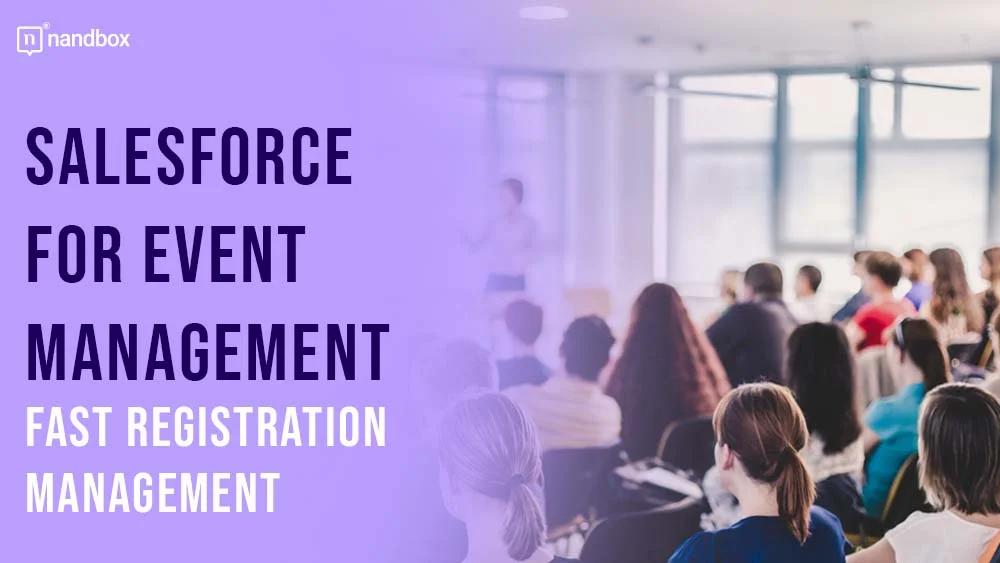Salesforce is renowned for its powerful customer relationship management (CRM) capabilities, but its utility extends far beyond traditional CRM functions. One area where Salesforce truly excels is event registration and management. Whether you organize a small workshop or a large conference, Salesforce offers a comprehensive suite of tools to streamline the entire event lifecycle, from planning and promotion to execution and analysis. By leveraging a consultant’s expertise, Salesforce becomes a powerful tool for businesses.
In this article, we will explore how to leverage Salesforce for event management and registration, covering its event creation and planning tools, registration and ticketing systems, marketing automation, real-time analytics, and practical implementation steps.
Event Creation and Planning Tools
Planning an event involves a multitude of tasks, from scheduling and budgeting to coordinating speakers and venues. Salesforce alone simplifies this process but when enhanced with the AC Event Enterprise (ACEE) app, it becomes your number-one tool for event planning since Advanced Communities was designed to boost the Salesforce event functionalities on Experience Cloud.
Salesforce provides robust event creation and planning tools to help organizers manage these tasks efficiently. Also, with Salesforce, you can create detailed event records that include essential information such as date, location, agenda, and speakers. Link these records to other Salesforce objects like contacts, accounts, and opportunities to get a complete view of your event-related activities.
Salesforce’s Calendar and Task features are particularly useful for event planning. The Calendar allows you to schedule meetings, set reminders, and sync with your team’s calendars to ensure everyone is on the same page. Tasks can be assigned to team members with specific due dates. Ensuring that every detail is accounted for and nothing falls through the cracks. Moreover, Salesforce’s collaboration tools, such as Chatter, enable real-time communication and document sharing among team members, fostering a collaborative planning environment. Organising events is not just about logistics—it’s a strategic opportunity to connect with your audience, boost brand presence, and drive business goals. For companies aiming to deliver high-impact experiences, partnering with a global creative event strategist transforms your events from well-executed to truly unforgettable. These agencies bring creative vision, operational excellence, and deep industry know-how to complement platforms like Salesforce, ensuring every event is both memorable and meticulously executed.
Registration and Ticketing Systems
A seamless registration process is crucial for any successful event. Salesforce’s registration and ticketing systems simplify this process by automating many of the steps involved. Using Salesforce, you can create customized registration forms that capture all necessary attendee information. You can embed these forms on your website or share them via email, making it easy for potential attendees to sign up. Partnering with Salesforce app development services can enhance this process by providing customized solutions tailored to your specific event management needs, ensuring a more efficient and user-friendly experience.
Salesforce’s integration capabilities allow you to connect with popular payment gateways, enabling secure online transactions for ticket purchases. Once registered, attendees can receive automated confirmation emails and digital tickets, reducing the administrative burden on your team. Furthermore, Salesforce’s data management features ensure that all attendee information is stored securely and can be easily accessed and updated as needed. Also, Customer Relationship Management (CRM) is a strategy to manage interactions with customers to improve satisfaction, loyalty, and sales.
For events with multiple sessions or ticket types, Salesforce’s flexible system allows you to manage different pricing tiers, discount codes, and group registrations. This level of customization ensures that your registration process can accommodate various scenarios, from early bird discounts to VIP packages.
Many tools in the Salesforce landscape provide further enhancements to the event registration process. One example can be the AC Events Enterprise and its Event Creation Wizard. This tool allows you to create an event in just a few clicks. By following each step, the system guides you through the process, enabling you to set up your event in seconds. This streamlined approach significantly reduces the time and effort required for event creation.
Marketing Automation
Effective event promotion is essential to attract attendees and generate buzz. Salesforce’s marketing automation tools empower you to create targeted marketing campaigns that reach the right audience at the right time. With Salesforce Marketing Cloud, you can design and execute email marketing campaigns, social media promotions, and digital advertisements, all from a single platform.
Salesforce’s segmentation capabilities allow you to target specific groups based on criteria such as past attendance, industry, or geographic location. This ensures that your marketing messages are relevant and personalized, increasing the likelihood of engagement. Automated workflows can be set up to send reminder emails, follow-up messages, and event updates, keeping your audience informed and engaged throughout the event lifecycle.
In addition, Salesforce’s analytics tools enable you to track the performance of your marketing campaigns in real time. You can monitor metrics such as email open rates, click-through rates, and social media engagement, allowing you to refine your strategies and maximize your marketing ROI.
Real-Time Analytics and Reporting
Data-driven decision-making is key to successful event management. Salesforce’s real-time analytics and reporting capabilities provide you with valuable insights into every aspect of your event. Additionally, with Salesforce Reports and Dashboards, you can create customized reports that track key metrics such as registration numbers, ticket sales, revenue, and attendee demographics.
These reports can be accessed in real time, allowing you to monitor your event’s performance and make informed decisions on the fly. For example, if you notice a decline in ticket sales. You can quickly adjust your marketing strategy or offer promotions to boost registrations. Post-event, you can generate comprehensive reports that evaluate the success of your event and identify areas for improvement.
Salesforce’s AI-powered analytics tool, Einstein Analytics, takes this a step further by providing predictive insights and recommendations. By analyzing historical data and trends, Einstein can help you forecast attendance, optimize pricing strategies, and identify high-value attendees for future events.
Event Creation Tools
Event creation tools in Salesforce are designed to simplify the planning process and ensure that all aspects of your event are meticulously organized. The Salesforce Event functionality is at the core of these tools, which serve as a central repository for all event-related information. This object can be customized to include fields that are specific to your event. Such as session schedules, speaker bios, and sponsor details.
To boost the event functionality, Salesforce AppExchange offers a variety of third-party applications that enhance event planning capabilities. For instance, apps like Cvent and Eventbrite integrate seamlessly with Salesforce, providing advanced features such as attendee tracking, on-site check-in, and badge printing. These integrations enable you to manage your entire event ecosystem from within Salesforce, streamlining operations and improving efficiency.
AC Events Enterprise is another noteworthy tool in this space. It offers comprehensive event registration and management features that integrate seamlessly with Salesforce. AC Events Enterprise is 100% native-to-Salesforce event software that boosts your business by improving the attendee experience. Providing real-time tie analytics, increasing productivity, enhancing data management, and event planning.
Key features of the AC Events Enterprise include:
- Fast Event Creation: Seamless process with Event Creation Wizard, allowing for the creation of numerous types of events (local, online, Zoom webinars, and recurring events).
- Event Automation: Set up event reminders, send post-event messages and follow-ups, and distribute tickets automatically.
- Event Pages on Experience Cloud: Create event pages with all key details such as date, time, number of attendees, registration button, event agenda, speaker info, and more.
- Marketing Automation: Store attendance data to leverage for future marketing efforts. Enabling the creation of targeted campaigns based on past event data.
- Reporting and Data: Collect attendee feedback and overall attendance trends to create pre-built reports and dashboards for analyzing and fine-tuning event strategies.
Implementing Salesforce for Event Management
Implementing Salesforce for event management involves several steps to ensure a smooth transition and effective platform use.
Here are some key considerations:
- Define Your Goals: Before you begin, clearly define your event management goals and objectives. This will help you determine which Salesforce features and tools are most relevant to your needs.
- Customize Salesforce: Tailor Salesforce to fit your event management requirements by creating custom objects, fields, and workflows. This customization will ensure that Salesforce aligns with your specific processes and terminology.
- Integrate Third-Party Apps: Leverage third-party applications from the Salesforce AppExchange to enhance your event management software capabilities. These apps can provide additional functionality and streamline various aspects of your event.
- Train Your Team: Train your team to use Salesforce effectively for event management. Provide training sessions and resources to help them understand how to utilize the platform effectively.
- Monitor and Optimize: Continuously monitor the performance of your events using Salesforce’s analytics tools. Use this data to make informed decisions and optimize your event management processes over time.
Also, by following these steps. You can successfully implement Salesforce for event management and unlock its full potential to create seamless and memorable events.
Final Thoughts
In conclusion, Salesforce offers a powerful solution for seamless event registration and management. From planning and registration to marketing and analytics, these tools enable you to create, manage, and optimize events with ease. By leveraging Salesforce’s capabilities, you can enhance attendee experiences, streamline operations, and achieve your event management goals with ease.





